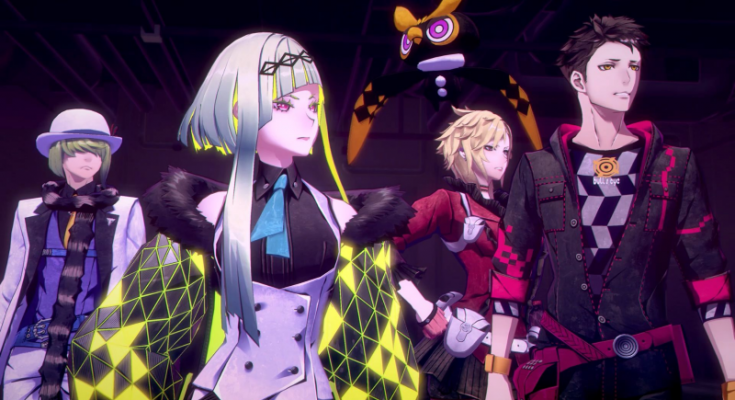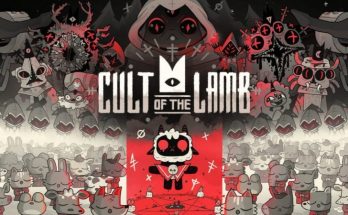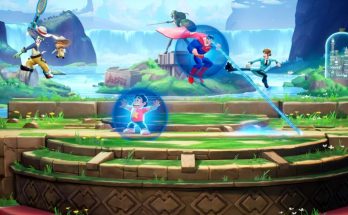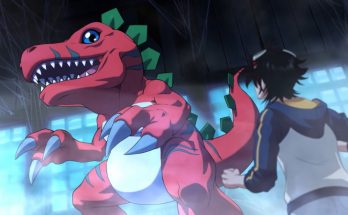A group of bounty hunters once again gather at their favorite bar. For the first time, protagonist Ringo pays attention to the lush cherry blossom decorations on the ceiling. His friends say that the real ones are even prettier and laugh at the idea of a bunch of Devil Summoners having a picnic and looking at the flowers. Friendly ridicule leads to a funny but cute message: “I guess we should show Ringo the funny side of being human, right?” Sadly, Soul Hackers 2 does not agree with this sentiment.
Soul Hackers 2 is the sequel to 1997’s Devil Summoner: Soul Hackers, an RPG spun from the Shin Megami Tensei series. 25 years later, with games like Persona 5 bringing the SMT universe into the limelight, the landscape couldn’t have been more different.
Set in the 21st century, two clans of Devil Summoners fight for an ancient power. As a result, Aeon, a highly developed artificial intelligence that is closer to reality than I’m comfortable with, predicts that doomsday is about to come. The only ones capable of stopping this are Ringo and Fig, the two personalities of Ion in the flesh. Both can hack people’s souls to bring them back to life and give them a second chance while serving as key pieces to averting doom.
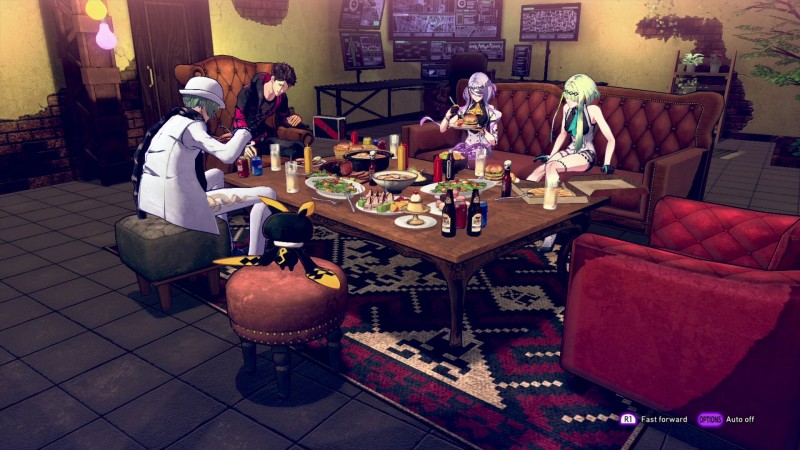
The premise is interesting, and although the villains don’t carry enough weight to stand out, I was invested in the story. Naturally, the pasts of the three characters joining Ringo’s quest add up to the larger narrative. There are glimmers about the meaning of mortality surrounding Ringo’s gift, as well as how soul-hacks choose to act when settling a long-standing score or allowing one to recover a bond with a mate. But the most interesting plot points feel rushed without enough room to create meaningful stakes or emotional tolls. As a result, the few moments that stand out feel unearned.
Gameplay-wise, Soul Hackers 2 doesn’t offer an incentive to stray from the main path and spend more time in its otherwise interesting world. Side quests are unremarkable and are based on areas that are not interesting to explore. Combat is more on par with Persona 5 than Shin Megami Tensei V, which offers a number of upgrades and skills to dress up your experience. Only that it’s far more streamlined, lacking the enticing press-turn mechanic from the mainline game that adds a twist when it takes advantage of an enemy’s weakness. Instead, doing so adds a stack to the Sabbath, which serves as an all-out attack at the end of your turn. It makes for a lovely spectacle as the arena gradually takes on a colorful aura, the more attacks you can stack. But it also creates unnecessarily long encounters without much risk. Enemies can’t take advantage of your party’s weaknesses, so you can always recover later.
During the 30 hours it took the credits to hit, I kept trying to latch onto the elements that worked. Soul Hackers 2’s saving grace lies in its main characters, each with a distinct personality that often conflicts with the rest. It was a pleasure to see the group grow by putting aside their differences and opening themselves up to camaraderie. I loved his talks about freelancing as Devil Summoners as much as the tough conversations he lost over food or drink. But there isn’t a seat at the table for the player to do it all.
During that night at the bar, the group wondered whether they would be alive until the flowers bloomed again. And I know they will because I put in the effort to do so. I just wish I had been rewarded with a little more humanity and meaning for my struggles, seeing as they create that memory for themselves.
